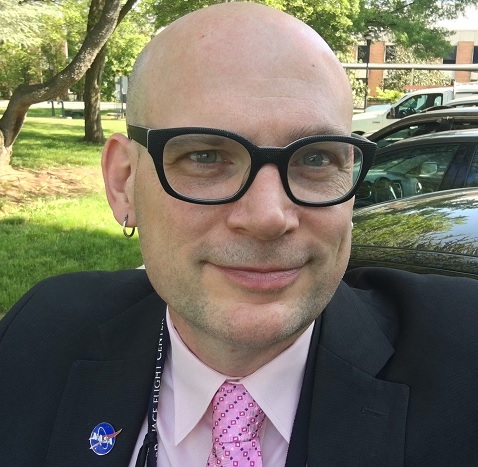
Systems Engineering Seminar
Communicating Your Science and Engineering
Presented by:
C. Alex Young, Ph.D.,
Associate Director for Science, Heliophysics Science Division (Code 670)
Tuesday, August 13, 2019
Building 3 Auditorium

Abstract:
Effective communication can open doors, accelerate your career and even make you a better scientist or engineer. Part of being an effective and productive scientist or engineer means being an effective science and technical communicator. The scientist or engineer must communicate their work in talks, posters, peer-reviewed papers, internal reports, proposals as well as to the broader public (including law makers). Despite the importance of communication, it has traditionally not been part of our core training. Today’s students are beginning to have more opportunities to formally develop their science and technical communication skills. Fortunately, new and even more established scientists and engineers have a range of tools and resources at their disposal. In this presentation, we will share some of these resources, share our own experiences utilizing them, and provide some practical tools to improve your own communication skills.
Biography:
Dr. C. Alex Young is a NASA solar astrophysicist studying space weather in our solar system and beyond. He led NASA national education and outreach activities for the August 2017 total solar eclipse. He is the Associate Director for Science in the Heliophysics Science Division at NASA's Goddard Space Flight Center and the head of the NASA Space Science Education Consortium. In this role, he is responsible for overseeing and coordinating education and public outreach in the Goddard Heliophyiscs Science Division as well as for the Heliophysics Division at NASA Headquarters. He works with the education and outreach teams as a liaison with the NASA offices of Education and Communication. In addition, he works with the division scientists to promote and support their research. Dr. Young served as SOHO and STEREO senior support scientists as well as a Hinode Chief Observer before becoming an Associate Director. His research background includes igh energy astrophysics, astrostatistics, and data analytics.